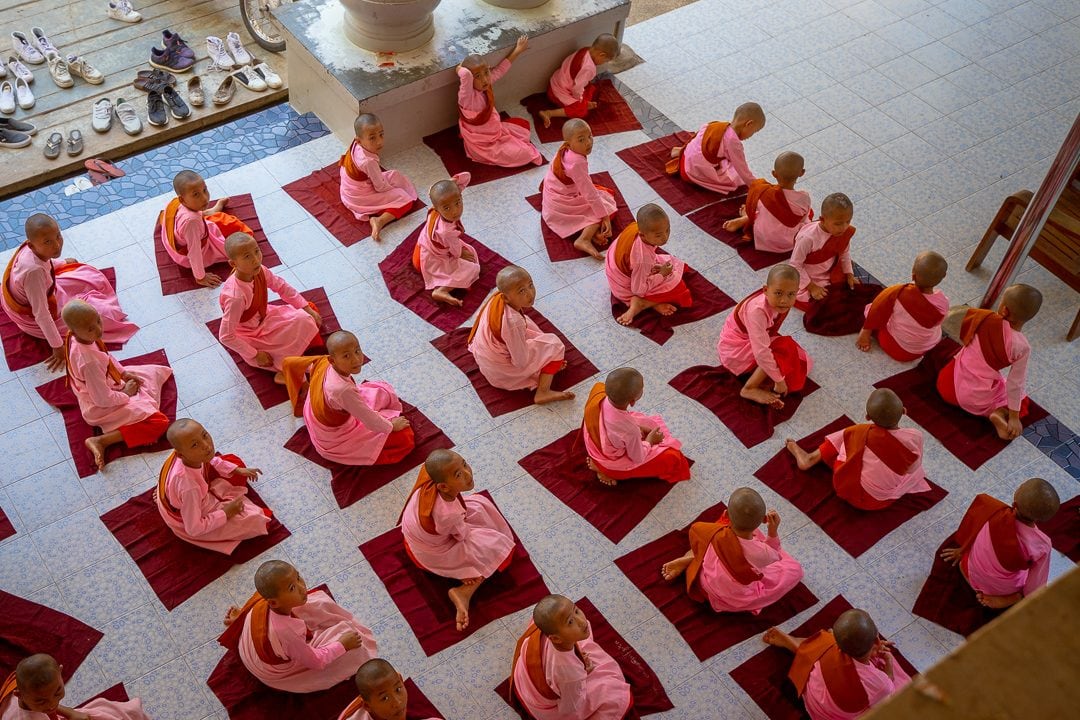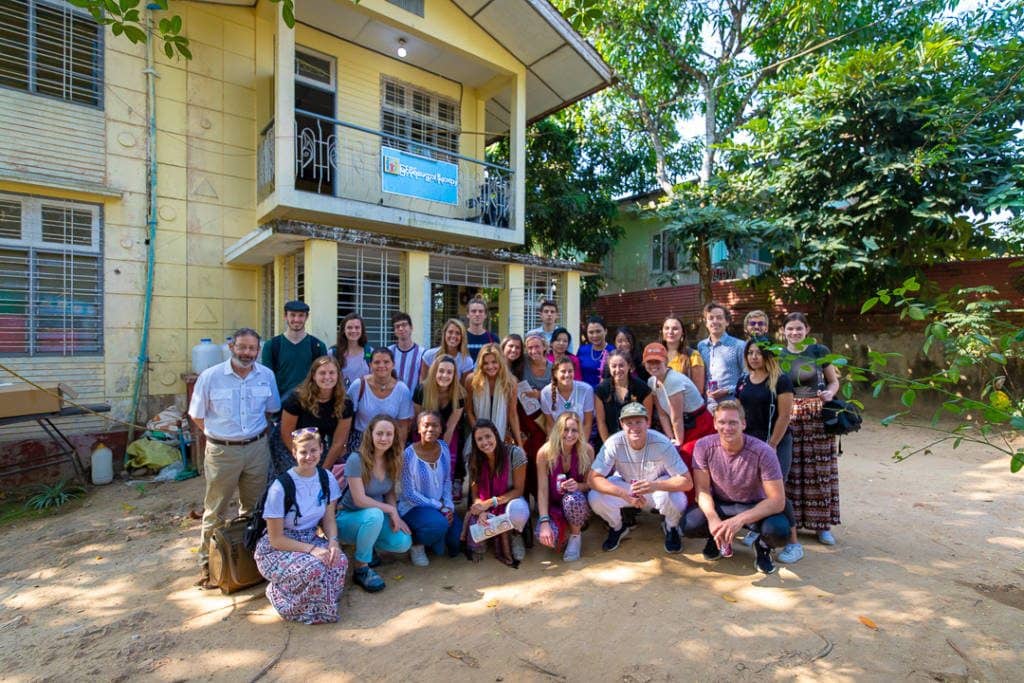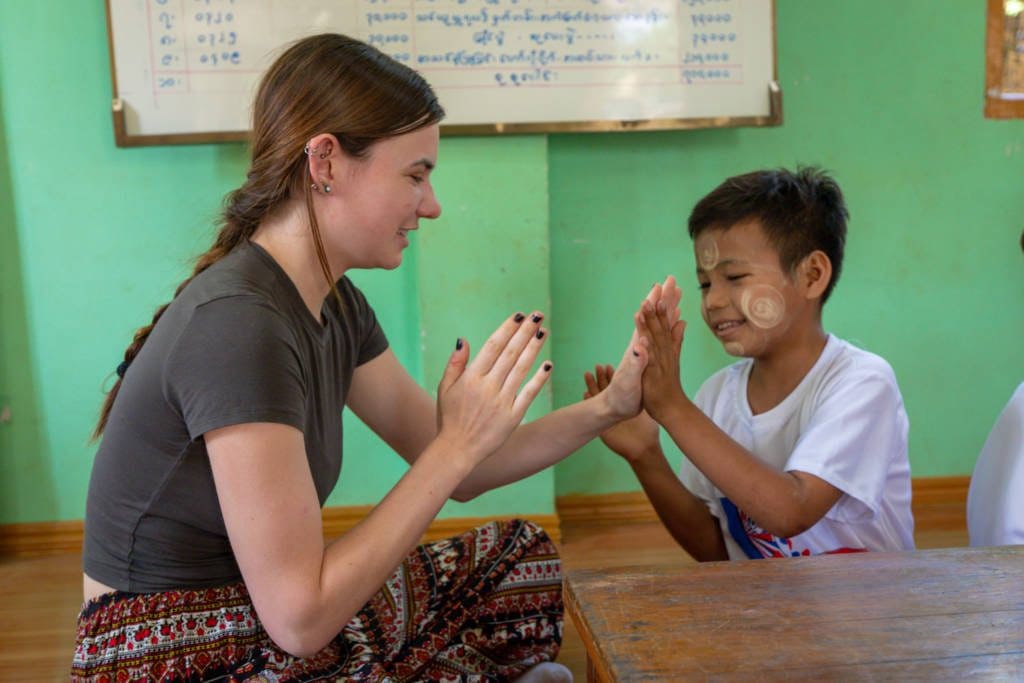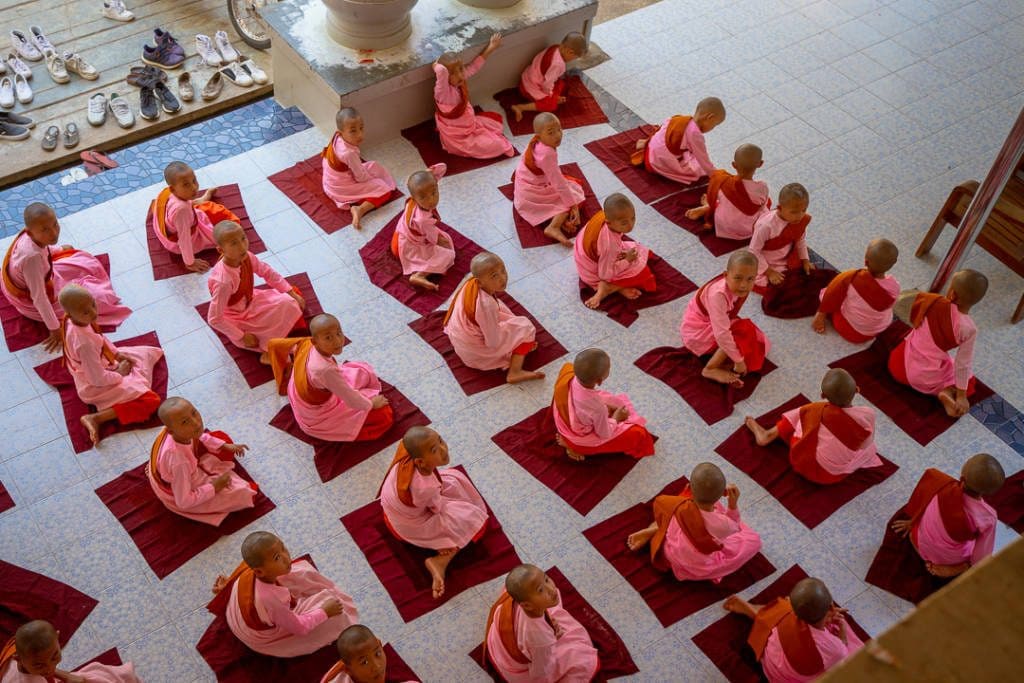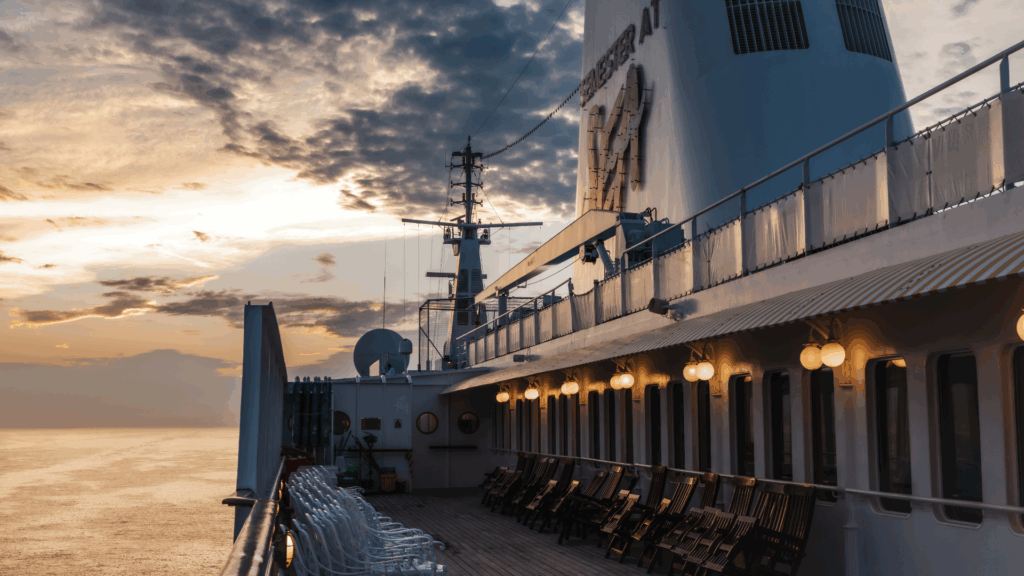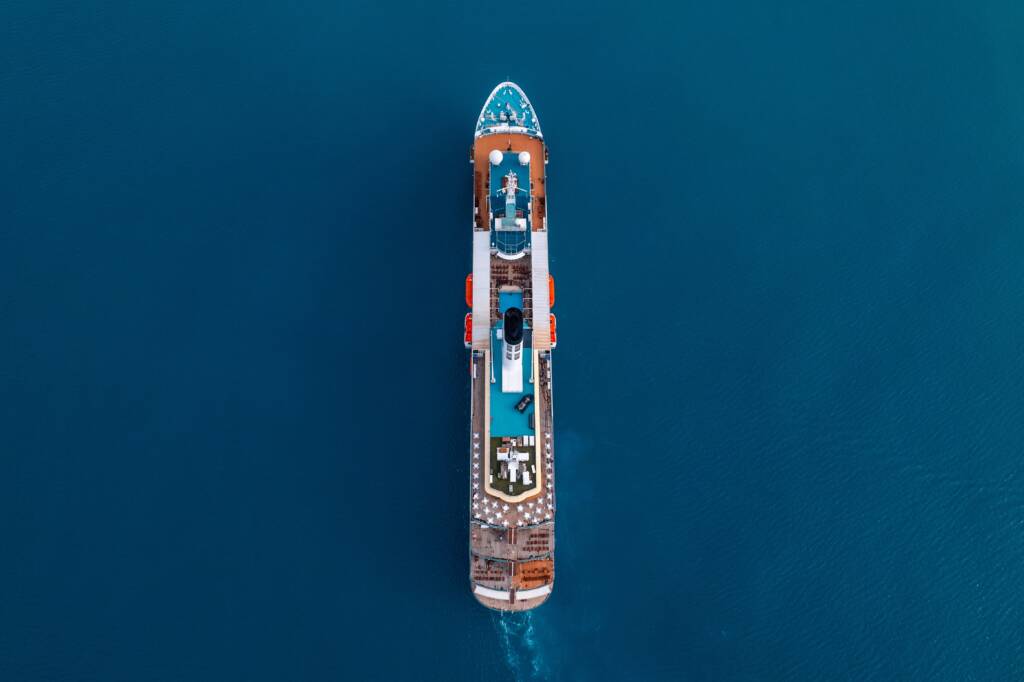Spring 2019 Voyagers enrolled in Professor Christina Scott’s General Psychology 101 course have spent much of their time at sea debating the role of nature versus nurture in the psychological development of children. In order to put their conversations into the context of global education practices, students visited three different models for education in the small town of Thanlyin, Myanmar outside of Yangon in order to get a sense of how concepts they learn in class actually play out in real-world situations.
“My hope for this field class is that you will look for some of the psychological concepts we talk about in practice at these education centers. Also consider how drastically different your own life might look if you found yourself in one of these situations. How would you adapt to life in a monastic school or if you worked at a crisis pregnancy center like this one? Practice that empathy and imagine yourself here,” said Professor Scott, who teaches as at Whittier College, as she prepared her students for their experience.
The field class started with a visit to Myintmo Myinttar Narkhoyar Single Mother’s Foundation and Home. Founded and operated by Dr. Myat Sander Thant, the home was created in order to accommodate single women with crisis or traumatic pregnancies, including in situations of rape and incest. Nearly 40% of the women served by the center are impregnated during these moments of trauma and need access to prenatal care and post-birth support as single mothers.
Students listened to Dr. Thant discuss her inspiration to start the center and how they have provided support to over 160 women in the last two years, some of whom were as young as 12-years-old. Dr. Thant went on to discuss their efforts to provide comprehensive sex education to the local community, a topic that is typically ignored by public schools in Myanmar.
“The most impactful part of the day for me was visiting the single mother’s home,” said Josie Miller of Bethel University. “It really opened my eyes to issues like child pregnancy and abandonment that I wasn’t even aware of 10 minutes before stepping into the home. It hit me really hard.”
Following the single mother’s home, students traveled a few minutes down the road to Sure Htoo Pan Monastic School where they saw how the local primary school serves about 300 students in the community. They briefly sat in on a class to see the Burmese teaching style, which typically includes few written or reading components due to a lack of resources. Most lessons are taught orally, and Semester at Sea students were asked to lead a short song session in English to practice with the students.
“I thought this field class was really amazing and it was a good experience for us to build empathy. We should feel very grateful that our education system is very advanced, with lots of resources. It showed me that we are privileged and that we should take advantage of all the educational opportunities we are presented with because it is special to have access to those,” reflected University of San Diego student Cooper Milton.
Contrasting with the monastic school, the final stop of the field class was at the Khaymarrama Nunnery run by Daw Sandar, the chief nun. This nunnery offers religious-based education to 600 female students, many of whom would not otherwise have access to education. Families send their daughters to live and study at the school as a means of stability.
Recapping her experience in Myanmar, voyager Isma Carmona, who hails from Spain and who attends the University of Oklahoma, said “The academic value of this class was being able to apply the concepts we learned in class in a real setting. We are studying nature vs. nurture and sometimes it is difficult to understand the concept, but with an organized program like this which actually shows you those concepts, you learn more. Humans all have the same qualities or brain chemistry, but our culture and the way that we are raised impact us differently. Our access or lack of access to the rest of the world impacts the way that we perceive and approach things, and it was so interesting to see how they are similar but also diverge.”
